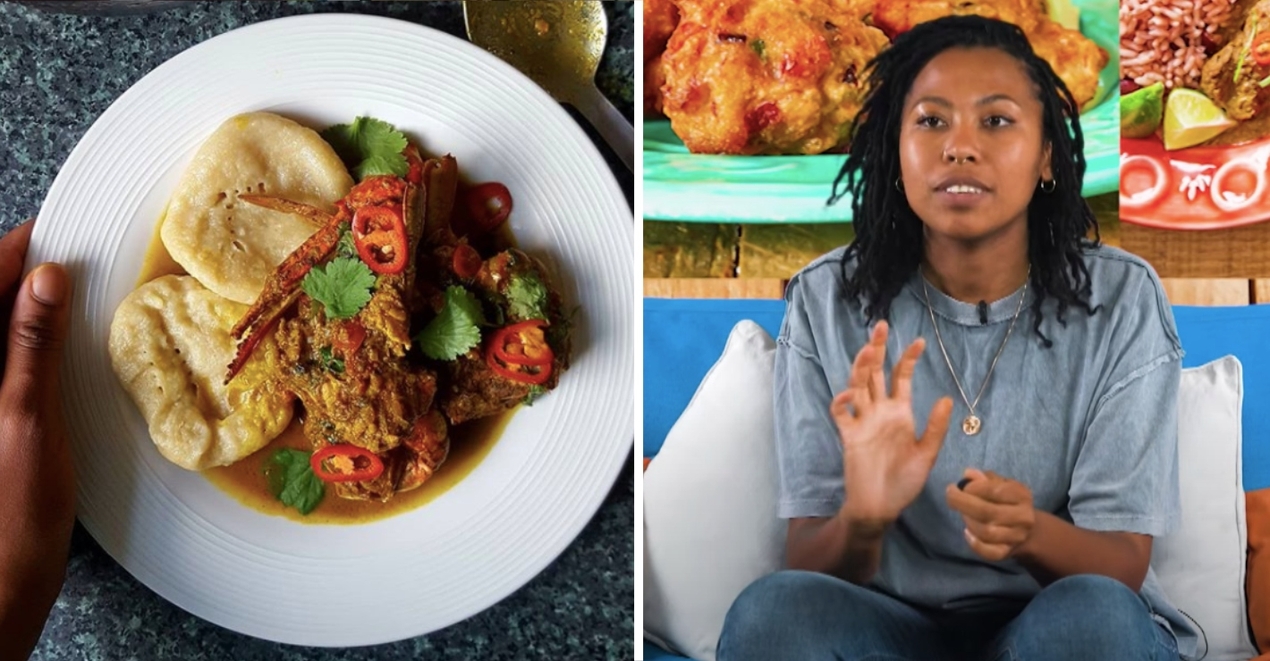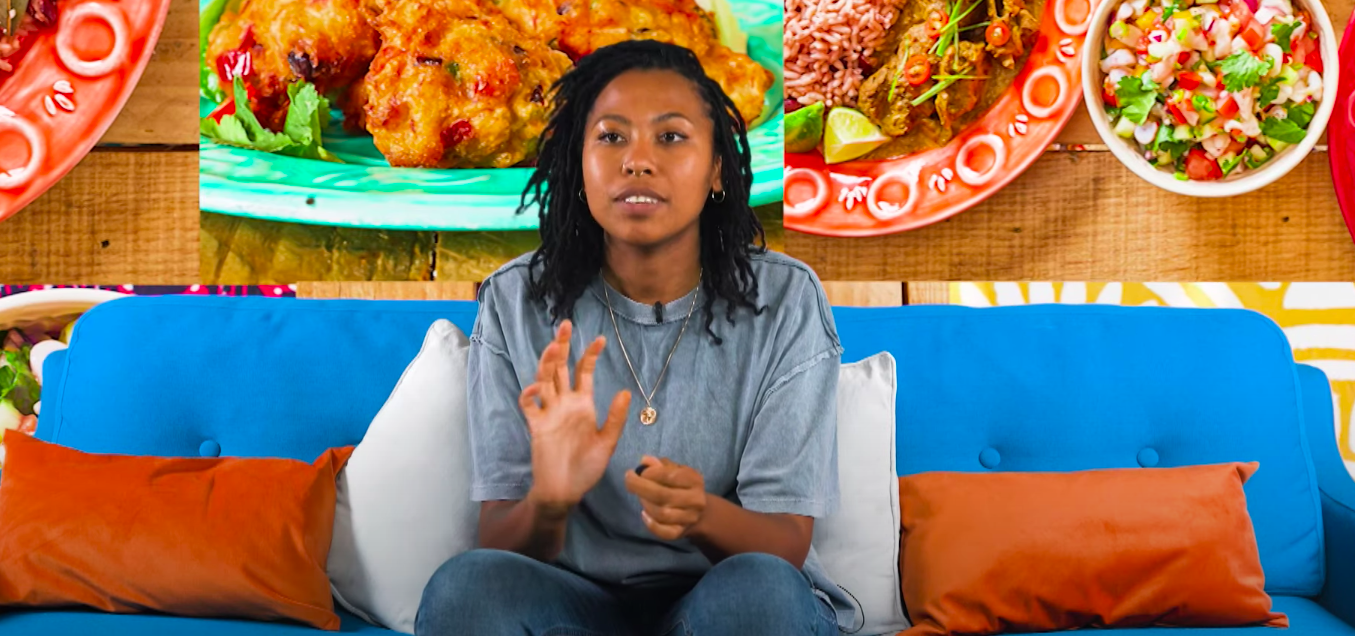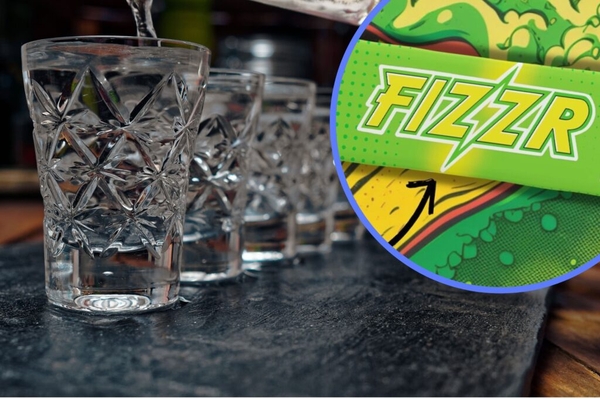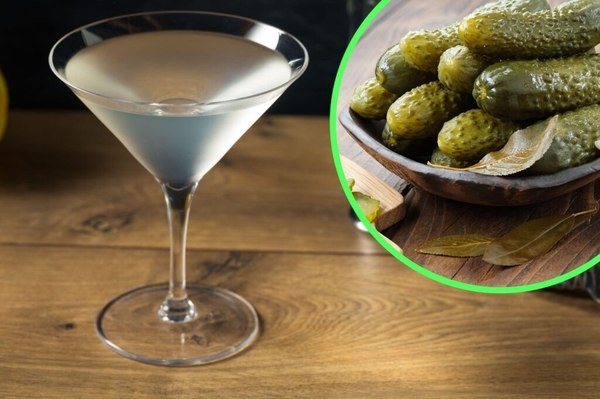Caribe’ owner Keshia Sakarah talks Caribbean cooking, cultural appropriation and Jamie Oliver
06 Jan 2021
4m

Despite only being open for 12 months, Caribe’ has made a big splash in the South London food scene.
With a menu showcasing the very best of Caribbean cooking, the Brixton-based restaurant and its founder Keshia Sakarah are on a mission to raise awareness of this incredible food culture and, ultimately, to “change the way we eat and drink Caribbean cuisine”.
This is no small task. But, as it quickly becomes clear from our conversation with Sakarah, it’s a challenge she relishes.

“People aren’t just eating my food, they are battling their own biases”
One of Sakarah’s biggest obstacles has been changing the public’s preconceptions of what Caribbean food is. This includes everything from the dishes themselves to when you’re supposed to eat them. As she explains:
“What I’ve realised now, having opened a space, is that people’s perceptions of Caribbean food, unfortunately, is almost seasonal.
“This is so strange to me because we eat what we eat all year round. I would eat Thai food in November just as much as I would eat in March.
Read More: Cabby’s Rum maker reveals how coronavirus is destroying the alcohol industry
“But, strangely, for Caribbean food there is this perception that it’s summery and that people should only eat it in the hot months.
“Having started (Caribe’) in the winter, building that audience was really difficult because people aren’t just eating my food, they are battling their own biases. I didn’t realise how much of an issue that was.”
Tackling a potential customer’s assumptions about her cooking is even more pronounced when it comes to the menu. As Sakarah explains, Caribbean food is about so much more than just jerk chicken.
“So many people say to me, ‘do you cook jerk chicken? Are you from Jamaica?'” she tells us, as she prepares a pot of “Oil Down”, the national dish of Grenada, in the Twisted kitchen.
“And I say, ‘no, no’. Because my family is Montserratian and I just don’t cook jerk chicken all the time because there are so many other foods to eat that are really nice.”
Watch Caribe’s Keshia Sakarah cook Oil Down at the Twisted studio:
Exhibiting the diversity of Caribbean cooking is central to Caribe’s mission. In less adept hands, presenting dishes from across the region on one menu could cause problems, but its a balancing act that Sakarah successfully pulls off.
Explaining the restaurant’s ethos and the difficulties she faces, Sakarah says:
“Within the Caribbean community and for others on the outside wanting to learn more, there are so many nuances.
“Every island has its own sub-culture, so to call yourself ‘Caribbean’ is very much a term used outside of the islands. If you’re from St Lucia, you’re St Lucian.
“The idea with the recipes was to continue that conversation and have everyone saying, ‘I call these accra fritters/but we call them fish cakes,’ etc.
“But we also want to highlight that we do so much the same, but with our own twist.”
Despite the delicate politics, reaction to the restaurant among the Caribbean community has been extremely positive. As Sakarah reveals:
“It’s been really positive. Actually, it’s what encourages me to do more.
“There’s so much of our history that, unfortunately, we are unaware of because it has been told by the oppressor.
“So many of us do so many things the same, but we don’t even know why we do it.”
Having that conversation is at the core of what Caribe’s trying to do.
“Our culture is constantly appropriated”
Given the restaurant’s clear cultural emphasis, it’s unsurprising that Sakarah has strong opinions on appropriation. For her, there is a world of difference between appreciating and sharing other cultures’ traditions and taking from them for your own benefit.
As she puts it:
“Cultural appropriation and appreciation are obviously polar opposites. Appropriation is where you hijack something from another culture and in doing so you don’t respect the origins of it, almost using it as a weapon against the origin.
“For example, Jamie Oliver’s jerk rice – he created that, having no awareness of the beginnings of jerk in the first place and without consulting those of that culture in the industry that would have been able to give him some insight.
“I could never imagine, for instance, creating some dim sum and saying, ‘this is the way you do it’. It’s not my culture and I really don’t know what I’m talking about.
“In any culture it’s not ok, but especially for Africans and Caribbeans because of our history. We have a massive sense of sensitivity there because our culture is constantly appropriated and is actually the root of so many things that we see, but it never gets acknowledgement or respect.”
Read More: Chuku’s restaurant owner Emeka Frederick on why coronavirus is a “great opportunity”
As we all begin to learn more about the history of our favourite dishes, understanding what that ancestry means is more important than ever. If you value food that’s as considered as it is delicious, Caribe’ is a must-visit.


